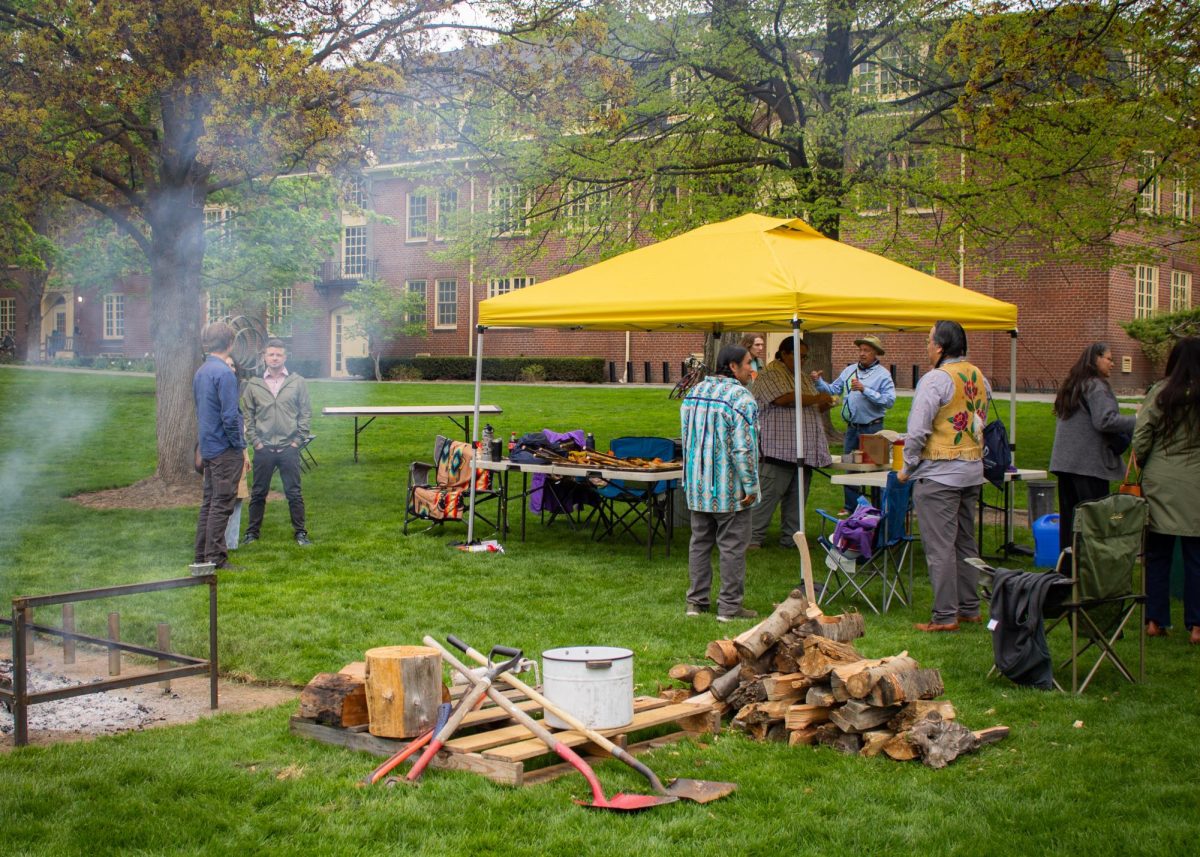Students curious about the future of Whitman College gathered in Reid Campus Center on Monday, Feb. 28 for an ASWC town hall meeting, where they heard from President George Bridges and Associate Professor of Sociology and Assistant Dean of Faculty Michelle Janning.
The meeting focused primarily on a presentation by Janning about an opportunity for student input in the accreditation process. Students were also given the opportunity to ask Bridges questions.
Janning explained that the time frame of the accreditation process, during which evaluators of the Northwest Commission on Colleges and Universities give Whitman its stamp of legitimacy, is changing. What used to take place in a two-year-long rush every ten years is now going to occur gradually over the course of seven years.
In April she will write a draft of a one-year report, which is due in September.
“It’s essentially a 15-page-long document in which we define who we are for ourselves,” Janning said.
At the town hall meeting, she wanted to get student feedback on the college’s mission statement. The mission statement will serve as a backbone for her accreditation report.
Attendees were given a sheet of paper with a list of the current mission statements three core themes: academic excellence; engagement, personal development and responsibility; and collaboration and community. Listed underneath each core theme was a bulleted list of objectives within the theme. Students’ goal was to suggest indicators for these objectives.
“We want to know from you what Whitman does that is unique,” Janning said.
Janning suggested the high participation at the undergraduate conference as an example of the first objective listed under “academic excellence,” which speaks to the college’s “innovative intellectual culture.”
Jewett Hall Resident Director Justin Daigneault suggested the residence life evaluation system as an indicator for the second theme of engagement, personal development and responsibility.
ASWC Vice President and Chair of the Student Affairs Committee John Loranger was very positive about student involvement in the accreditation process.
“It’s an awesome chance for students to participate in a process that represents the school to so many people,” he said.
He said that allowing students to participate reflects positively on the administration.
“It says a lot about this institution. Students are a big part of the school.”
Attendees then asked several questions of Bridges.
First-year Brian Choe asked about the financial situation of the college. Bridges told attendees that he feels the current financial situation is “solid,” especially taking into consideration the current economic troubles other colleges are facing.
First-year Kayvon Behroozian expressed a concern he heard from many first-years: most of their professors are not tenure-track professors.
Bridges responded by saying that the administration is moving “very aggressively” to hire some new faculty members and to possibly establish new tenure-track lines. He told attendees of the Mellon Grant, a grant Whitman applied for in October that would help fund up to eight new tenure lines.
The students also asked about the status of the education and music, specifically jazz programs.
Bridges said that six years ago, a group of faculty decided to phase out the education program, and though Whitman will still offer some education-related classes, the major is no longer available.
He also said the music department underwent an external review a year ago. Evaluators suggested that with the number of music faculty, it would serve Whitman well to change the music program from conservatory style to more focus on music history and theory.
Students expressed that they would be disappointed to see the performance aspect of the music major go.
ASWC Finance Chair Matthew Dittrich was pleased with the question-and-answer session.
“The student-administration relationship is a marriage. Happy marriages require communication. Town hall is an incredible opportunity for students to directly communicate to the administration,” he said.








